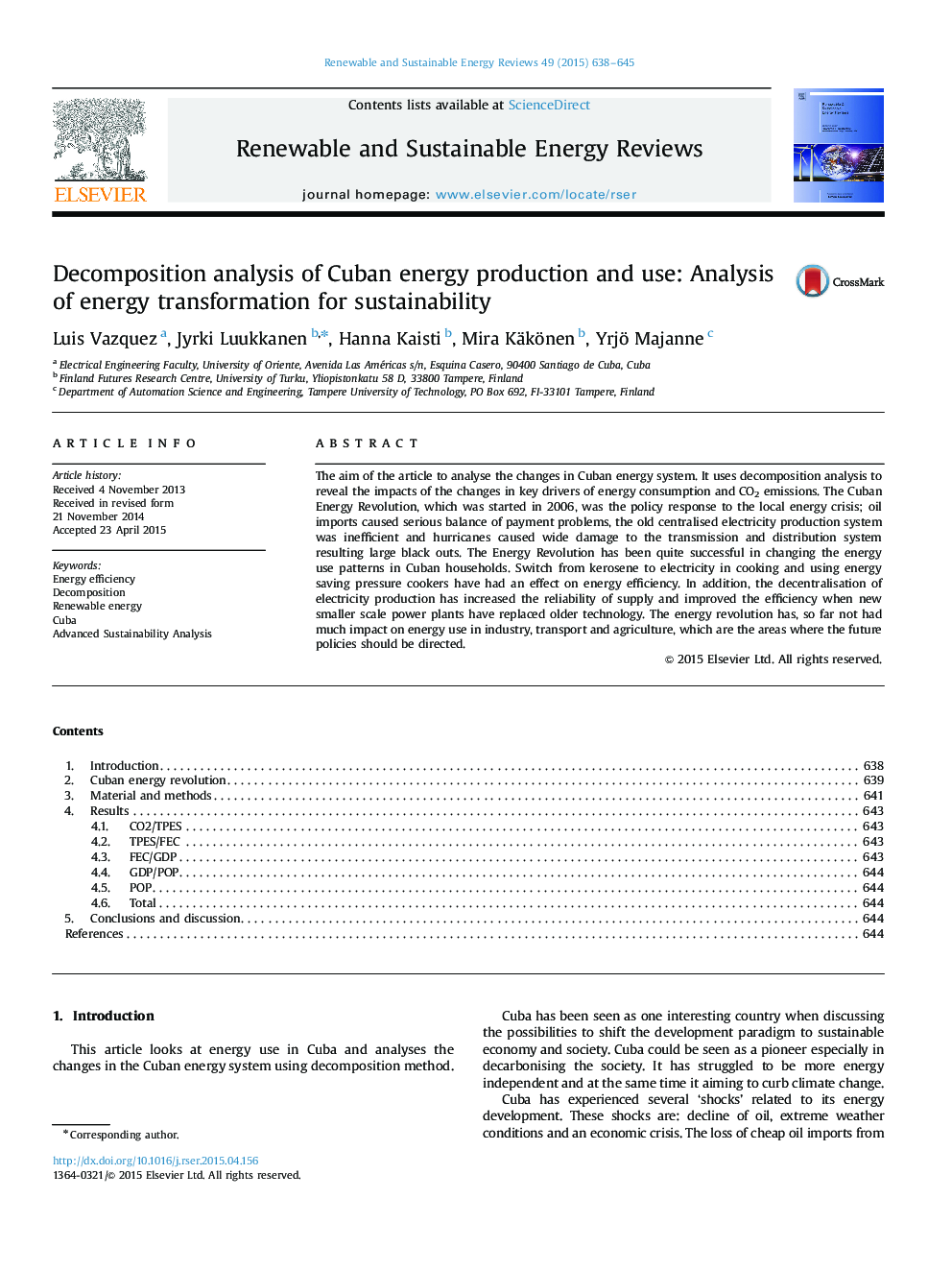| Article ID | Journal | Published Year | Pages | File Type |
|---|---|---|---|---|
| 8116688 | Renewable and Sustainable Energy Reviews | 2015 | 8 Pages |
Abstract
The aim of the article to analyse the changes in Cuban energy system. It uses decomposition analysis to reveal the impacts of the changes in key drivers of energy consumption and CO2 emissions. The Cuban Energy Revolution, which was started in 2006, was the policy response to the local energy crisis; oil imports caused serious balance of payment problems, the old centralised electricity production system was inefficient and hurricanes caused wide damage to the transmission and distribution system resulting large black outs. The Energy Revolution has been quite successful in changing the energy use patterns in Cuban households. Switch from kerosene to electricity in cooking and using energy saving pressure cookers have had an effect on energy efficiency. In addition, the decentralisation of electricity production has increased the reliability of supply and improved the efficiency when new smaller scale power plants have replaced older technology. The energy revolution has, so far not had much impact on energy use in industry, transport and agriculture, which are the areas where the future policies should be directed.
Related Topics
Physical Sciences and Engineering
Energy
Renewable Energy, Sustainability and the Environment
Authors
Luis Vazquez, Jyrki Luukkanen, Hanna Kaisti, Mira Käkönen, Yrjö Majanne,
